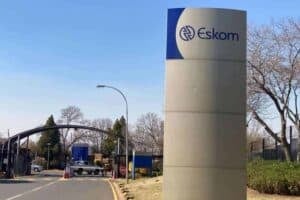Eskom's spokesperson has attempted to quash conspiracy theories that suggest SA is stupidly exporting the coal it actually needs for electricity.

Eskom national spokesperson Khulu Phasiwe took to Twitter on Sunday to attempt to set the record straight on why there has been load shedding recently and how, mostly, it was not caused by coal shortages.
A theory had sprung up in some circles that coal shortages were primarily to blame for why Eskom had struggled to keep the lights on, and some South Africans expressed anger at the fact that South Africa continues to export coal, mainly through the Richards Bay coal terminal, despite the apparent supply crisis in our own country.
Phasiwe, however, said that load shedding could not be blamed on the fact that more coal is exported out of South Africa, or used by other local industries, than is used by Eskom.
He said it was primarily breakdowns at Eskom plants that was the problem this time.
He denied that there was a coal shortage in the country, which had been alleged by at least one energy expert in televised interviews about load shedding.
SA generally produces over 250 million tons of coal per year, of which over 110 million tons is purchased by Eskom. The balance goes to export markets, Sasol and other users.
The notion that all the coal is being shipped off to China, and Eskom is left with none, is fake news. pic.twitter.com/9yHJUtOrKk— Khulu Phasiwe (@KhuluPhasiwe) December 16, 2018
Phasiwe said: “Eskom is seeing competition [to buy coal] from India, Indonesia, Pakistan, South Korea and Sri Lanka, who are also vying for the same coal quality that Eskom uses at most of its power stations.”
He mapped out a plan and said all stations were expected to be fully compliant with the Grid Code requirement of 20 days of coal stockpiles by the the end of the first quarter of 2019.
“South Africa generally produces over 250 million tons of coal per year, of which over 110 million tons are purchased by Eskom. The balance goes to export markets, Sasol and other users.
“The notion that all the coal is being shipped off to China, and Eskom is left with none, is fake news.”
His comments come in the wake of the announcement of the Eskom sustainability task team appointed by President Cyril Ramaphosa. The task team’s role will be to advise government on how to resolve the power utility’s challenges.
The high-level task team, which consists of individuals with extensive electricity, management, and economic expertise, will assist with Eskom’s operational, structural and financial challenges.
The team will review current energy trends; provide proposals regarding the role, positioning and structure of energy utilities; and make proposals to deal with the debt burden.
It will also assess Eskom’s current business model and structure.
The team members are Anton Eberhard, Brian Dames, Tsakani Mthombeni, Sy Gourrah, Grové Steyn, Frans Baleni, Mick Davis and Busisiwe Vilakazi.
Presidency spokesperson Khusela Diko said that individuals with extensive electricity, management and economic expertise had been chosen.
The task team would consult with various role players including labour and business, Diko added, and their first recommendations are expected to be submitted to Ramaphosa by the end of January.
Increasingly, Eskom is seeing competition from India, Indonesia, Pakistan, South Korea and Sri Lanka, who are also vying for the same coal quality that Eskom uses at most of its power stations. pic.twitter.com/3Ek6px0EBp
— Khulu Phasiwe (@KhuluPhasiwe) December 13, 2018
The EFF, on Saturday, however, smelled a rat and said Ramaphosa had engineered the load shedding crisis in order to create an excuse to get his cronies directly involved at Eskom in a bid to benefit from a stake in private energy.
In a statement the EFF said: “The appointment of this team is equal to setting up a parallel board; which will effectively render the board and management useless and redundant.
“If Ramaphosa did not have confidence in the current board and management, he should have dissolved them. It is our view that the recent episodes of load shedding were staged in a deliberate attempt intended to rationalize the appointment of this parallel board.”
The party said they were also shocked by the appointment of Eberhard, who according to the EFF saw no future for Eskom and had openly advocated for independent power producers.
“It is despicable to appoint a person who does not believe in Eskom.”
The appointment of Brian Dames also raised the EFF’s eyebrows. He is the CEO of African Rainbow Energy and minerals owned by businessman Patrice Motsepe, who is Ramaphosa’s brother-in-law.
The appointments were a sign of a bigger “more sinister and more corrupt project to concentrate the power to produce electricity in the hands of few private hands”.
The team would crush Eskom’s monopoly and make way for private, profit-driven, capitalist provision for electricity in South Africa, the EFF said.
This would result in expensive electricity, with black workers and the poor left in the dark “as they will not be able to afford electricity”.
They called on progressive movements to reject Ramaphosa’s attempt to destroy Eskom to benefit his friends and family.
The party said they intended on fighting any attempt to privatise Eskom or sell its assets.
“To stabilise Eskom, government must cancel all IPPs with immediate effect.”
(Compiled by Gopolang Chawane and Charles Cilliers)
For more news your way, download The Citizen’s app for iOS and Android.






